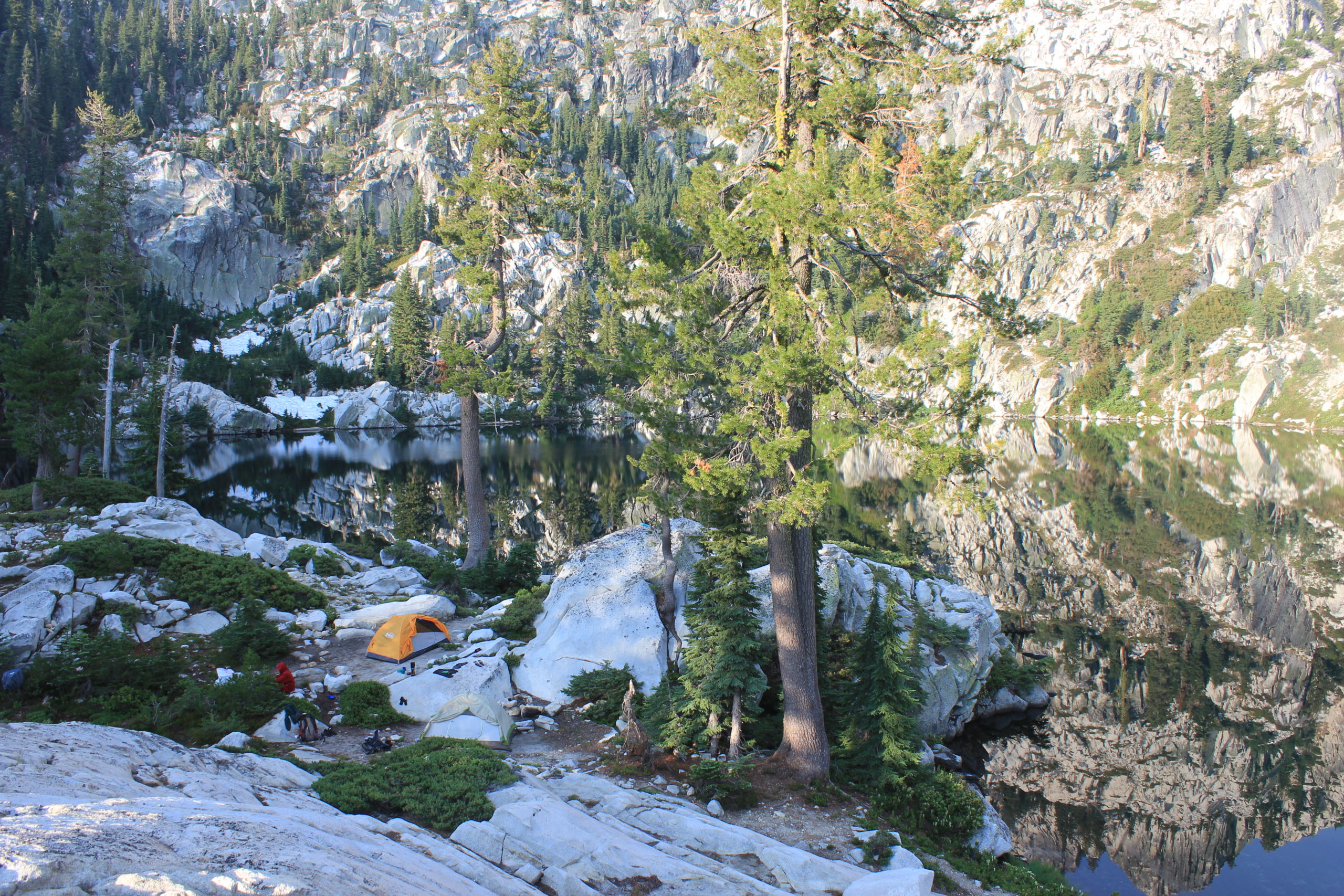“Wonder is a bulky emotion. When you let it fill your heart and mind,
there isn’t room for anxiety, distress, or anything else.”
— Diane Ackerman
I woke up to clear skies and alpenglow. The tents were still wet, but the ground was dry. Sleepy heads soon popped out of their nylon cocoons, looking for food and entertainment. Breakfast and morning routines were slow and easy. Later, we walked down to Wee Bear for playtime and exploration… or as much as our limited energy could provide. The sky remained hazy from the smoke of nearby fires, and perhaps a few more from the lightning storm. I hoped not, but that’s how forest fires usually start. We spent a spectacularly un-busy morning doing nothing in particular. Skipping rocks, tossing them in the clear water to create patterns, and marveling at the blue-veined streaks in the granite. We sat near the campsite at the edge of Dat Butte, just staring at the trees and phenomenal scenery. Eventually we moved our viewing party to the Altar, where we could see all the way down the valley. Queen Shasta remained cloaked in smoke and haze, and only a vague silhouette indicated her regal profile.
We were all pretty low on energy, due to the lack of sleep two nights ago, the smoke in the air, and the unfamiliar altitude. In addition, our lives back home were chock-full of activities and complications, and once we had the chance to pursue an unambitious agenda, we naturally toned down the activity level. Even Miles was quiet and reserved – not at all whining about having nothing to do. I was enjoying just being with people I loved, in a beautiful setting… even if it was slightly obscured by smoke, and hard to reach. My legs felt pretty confident, but my entire metabolism was subdued. I wasn’t even hungry.
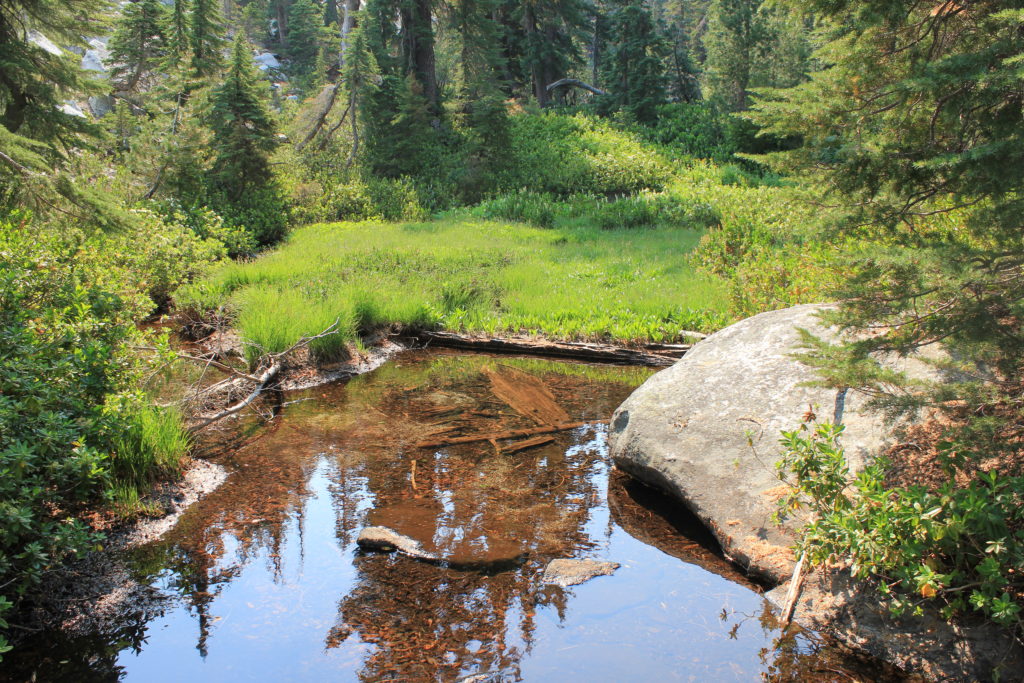
Doing nothing at all is a lost art in our society. When I was a child, afternoons and weekends were often completely devoid of any institutional agenda whatsoever. We’d slide down the dry, grassy hills on cardboard, and build forts in the oak trees. Or ride our bikes down to the creek and throw stones in the pools, and turn over rocks to see what was underneath. We’d make up our own games and contests, playing with exuberant abandon until we just laid down on our backs, exhausted, watching the clouds. Nowadays, when you normally ask a kid what they want to do, they’d rather stay home and play video games. After all, everything in the known universe, including all its rich history and fantasy, is available on a screen, within a few seconds. It’s up to the parents to organize activities, outings, and constructive things that interact with the real, natural world. When my generation was little, we spent most of our time avoiding things that parents wanted us to do. Being on our own, and deciding how we wanted to spend our own time, gave us a vital sense of autonomy in our “natural” suburban world. We followed our internal screenplay, instead of watching someone else’s reality (when we could tear our eyes away from the TV, that is). I believe that degree of instinctive agency is a hallmark of our evolution as a species. The loss of this natural inclination to daydream in action is a big reason why people are so disconnected from the environment, and they are able to condone destroying it.
On the way back, we crossed the marshy, plant-filled flats of Mama Bear Springs, and visited the cave at Baggins End. The fire made by the summer campers six weeks ago was long dead, of course, but the charred sticks made it seem as though somebody lived there. This made Dimari nervous, and he exited quickly. Jordan and I stayed behind to get some photos and speculate on the long-term habitation prospects. We trudged back to camp eventually, and ate a listless lunch due to our flagging energy. Jordan napped in his tent, while the rest of us hung out in the shade near White Bear Rock. Miles talked a lot about jumping into the lake off the rocks, or swimming out to capture a nearby floating log, but he waited until his big brother got up. Then, in a burst of boyish energy, they decided to do all those things together, and it was great fun. At one point, Miles found a dragonfly nymph crawling up his thigh, and he nearly shot straight out of the water like a missile. All afternoon, we did nothing more ambitious than conducting another rock-skipping contest.
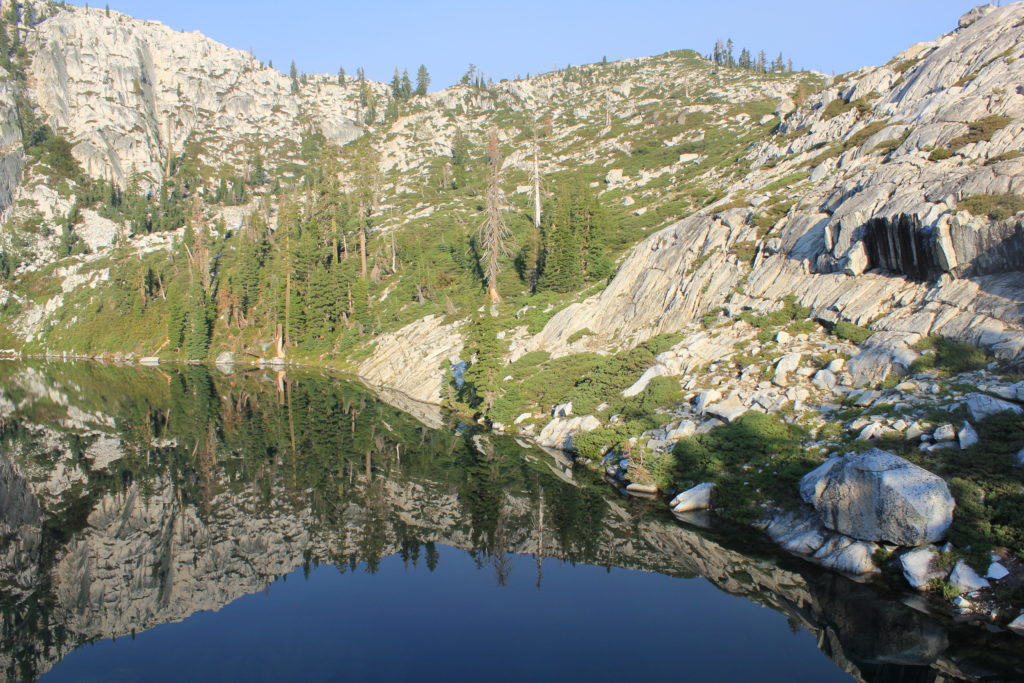
“That trail’s no joke,” Dimari repeated his tone of respect from the first time he came up here. It’s true that the trail is only 4-5 miles long, but the shock of departing everyday patterns and hauling one’s ass up the side of a mountain has the tendency to reveal one’s true softness. We lived such sheltered lives, having everything we need, yet driven by an insatiable hunger for acquiring even more. Privileged humans like us have moved from satisfying our basic needs to protecting our conveniences. We had finally chosen to take a “vacation” from all that we had accumulated, to sweat and struggle our way up to a place that doesn’t need anything from us. All we could do is observe its perfectly absurd interdependence. In reality, it’s not much of a vacation if you don’t wake up with at least the same amount of energy as you do at home. The prospects of “getting away from it all” should be so inviting as to invigorate our senses and supercharge our batteries. Sadly, it seems that our society has lost this ability, too, for the trail is long and rough, and the burden is heavy.
Everywhere you look, people are getting tired of working so hard “for a living.” Burnouts and social protests such as “quiet quitting” are common. Workers are fed up with trading their lives for money, and are looking for a simpler path, because every aspect of society is becoming more and more complicated. Take the Internet, for example. While it has many undeniable benefits, and improves certain tasks for those who know how to use it, what is the cost, in terms of our vulnerability? We have become so dependent on technology in general, and the Internet in particular, that if it crashed or broke down, whole economies would crumble, and societies would implode on themselves. History has taught us nothing. Once we became dependent on fossil fuels, for example, we gave all the power to petroleum companies and their financiers. Now, we have doubled down on our subservient reliance on isolated and elite tech giants, who are only interested in making more and more money from us. Where is all the free time and “quality of life” that was promised by their sleek, clean advertisements?
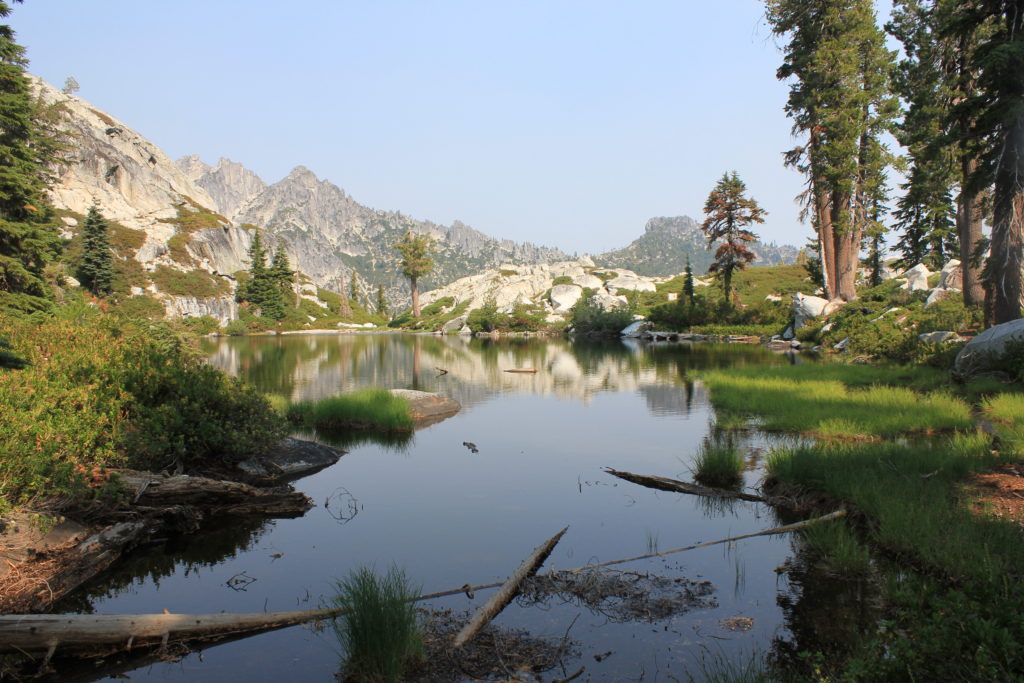
Dimari and I talked some more about the state of our world, raising good kids to improve it, and the challenges of everything becoming more problematical. This year, I have become the patriarch of my tribe. It’s true – all members of the older generations on my side of the family tree have died, which leaves me, my siblings, and cousins as the tribal elders. What knowledge shall I pass on to my descendants? Much of what is considered valuable knowledge in our society now, will not be much help in the chaotic future. I believe that fostering a deep and intimate relationship with the natural world is the only way to save any of us. Maintaining a childlike sense of wonder is challenging in such a cynical society, but it’s a life-saving grace. Each individual urgently needs to spend enough time in the wilderness to shed the delusions of an artificial civilization, and recognize the pervasive reality of nature. For some it will take longer than others, but all of us have this awareness in our consciousness. It’s part of our DNA. Like any useful skill, it needs to be practiced and developed.
I wandered around the campsites at the lake shore to see how everything had changed since the snow melted, and looking for bits of trash to pick up. Some asshole left a large, ugly splat of feces on one of the rocks, as if their butt had exploded. The unholy blast pattern was within 20 feet of the main campsite, and in plain view. Then they decorated it with nasty wads of toilet paper that didn’t even come close to covering up the mess. The local flies appreciated the display, but I was horrified, and sincerely hoped whoever did that required surgery on a ruptured hemorrhoid. People can be so selfish, entitled, and downright nasty in their callous disregard for preserving the beauty of the wilderness. I covered it artfully with forest debris, but wasn’t feeling altruistic enough to clean it up and pack it out!
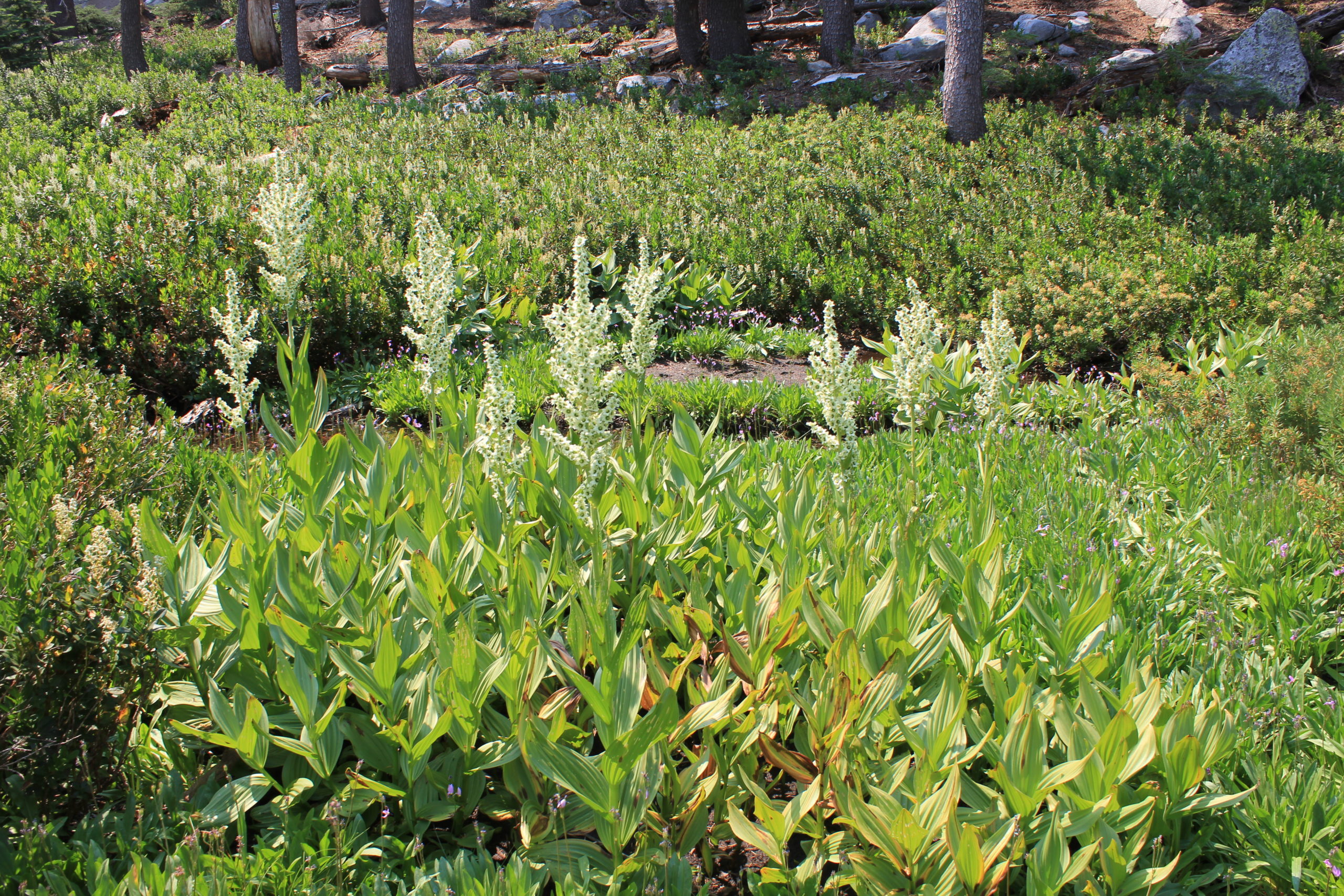
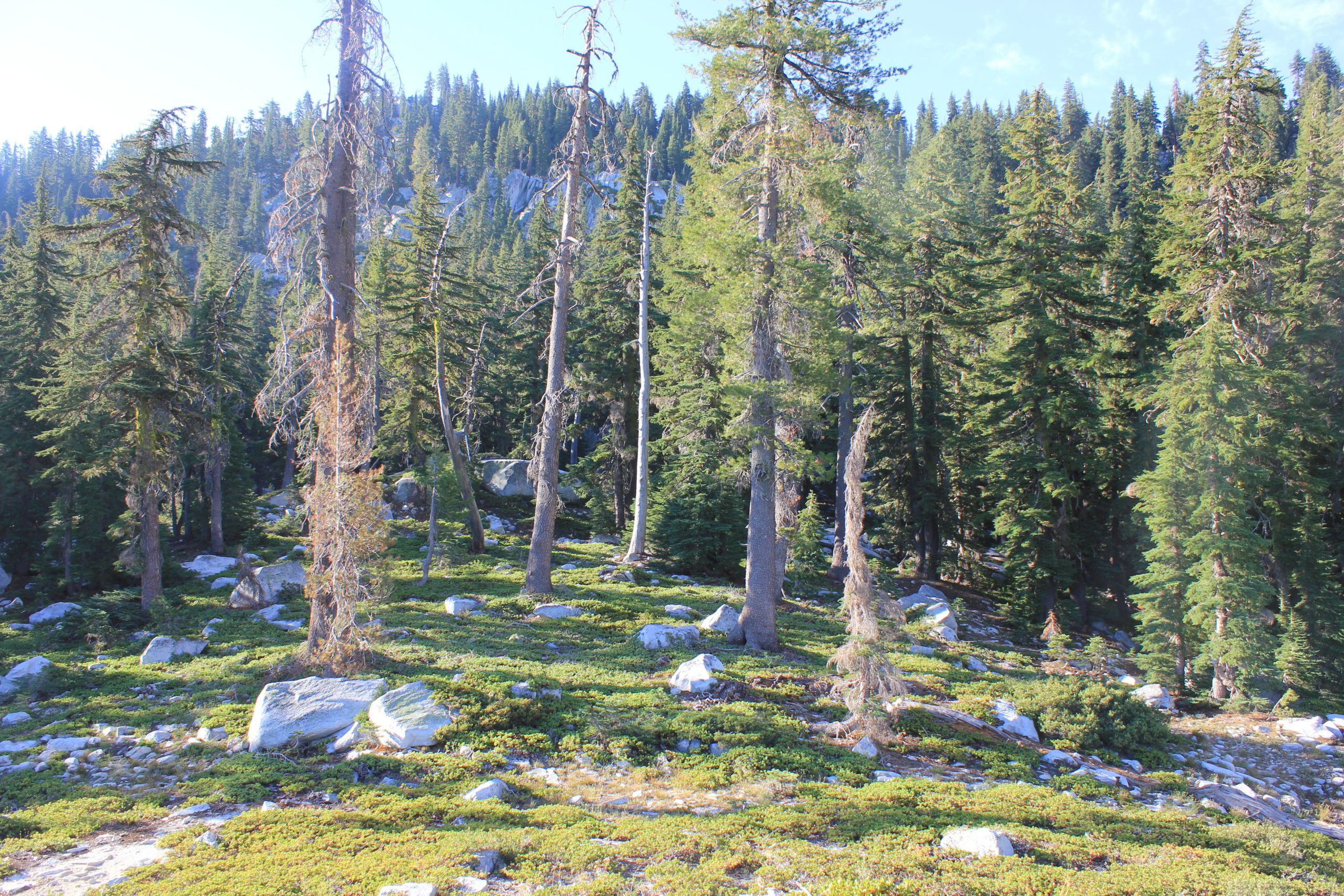
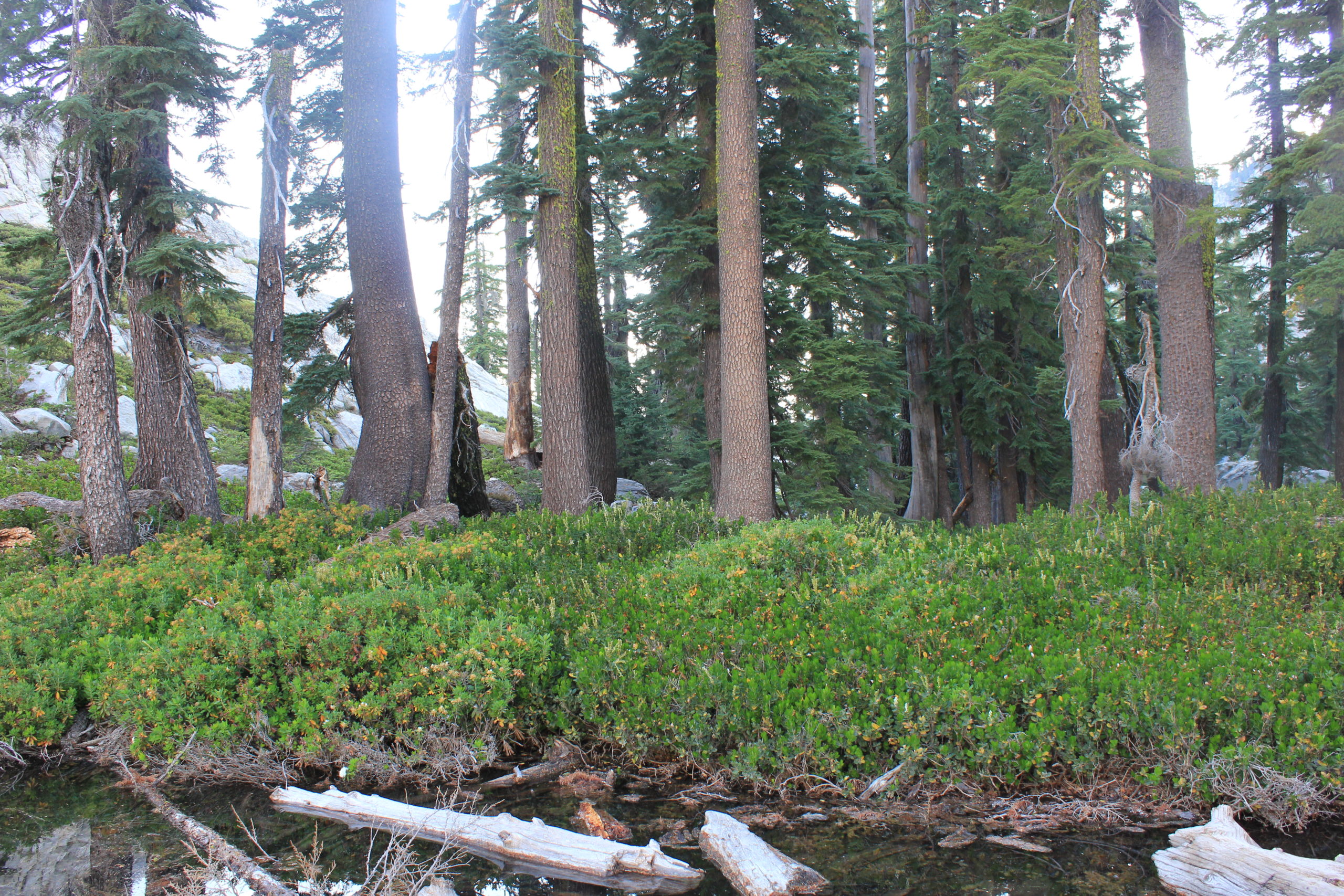
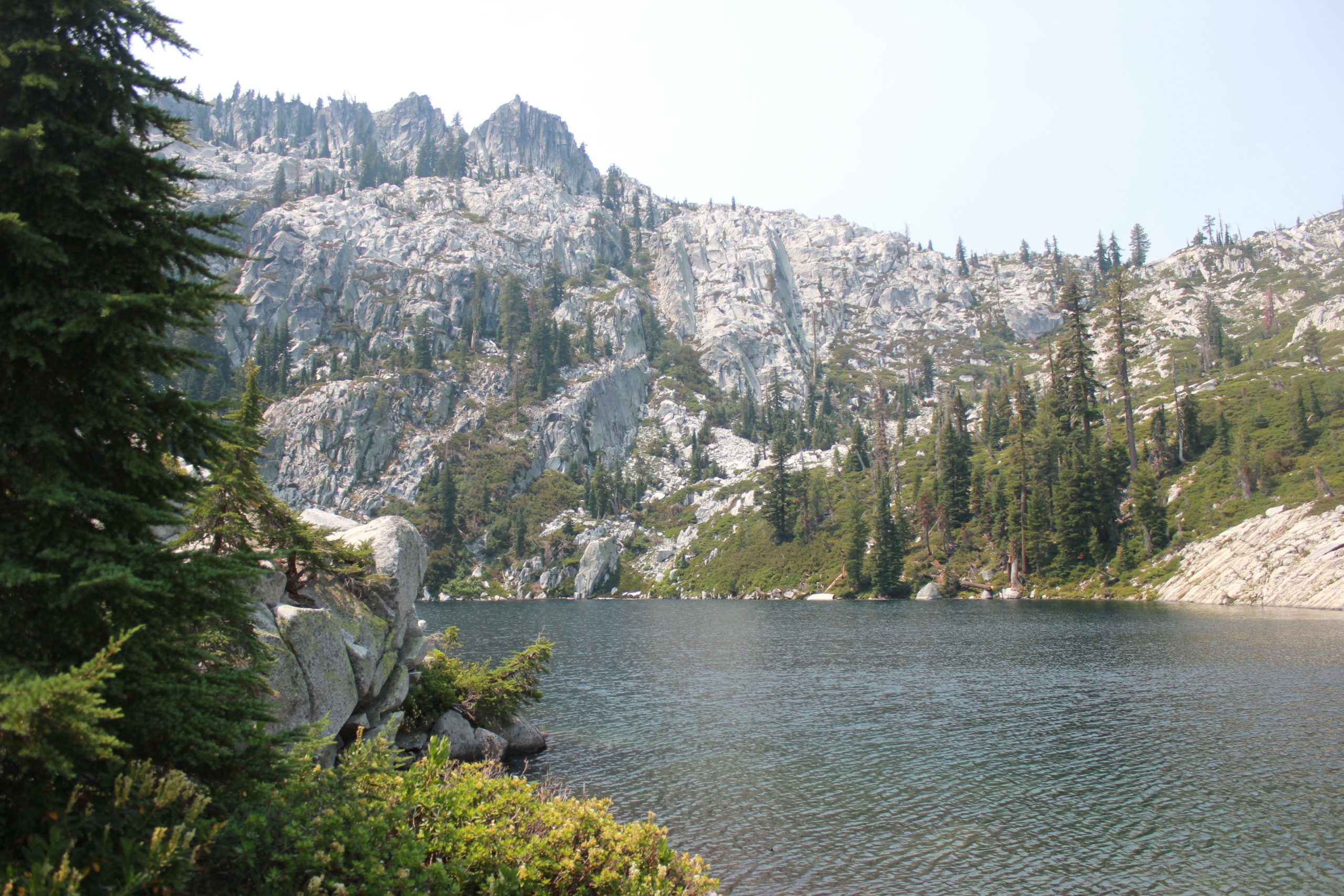
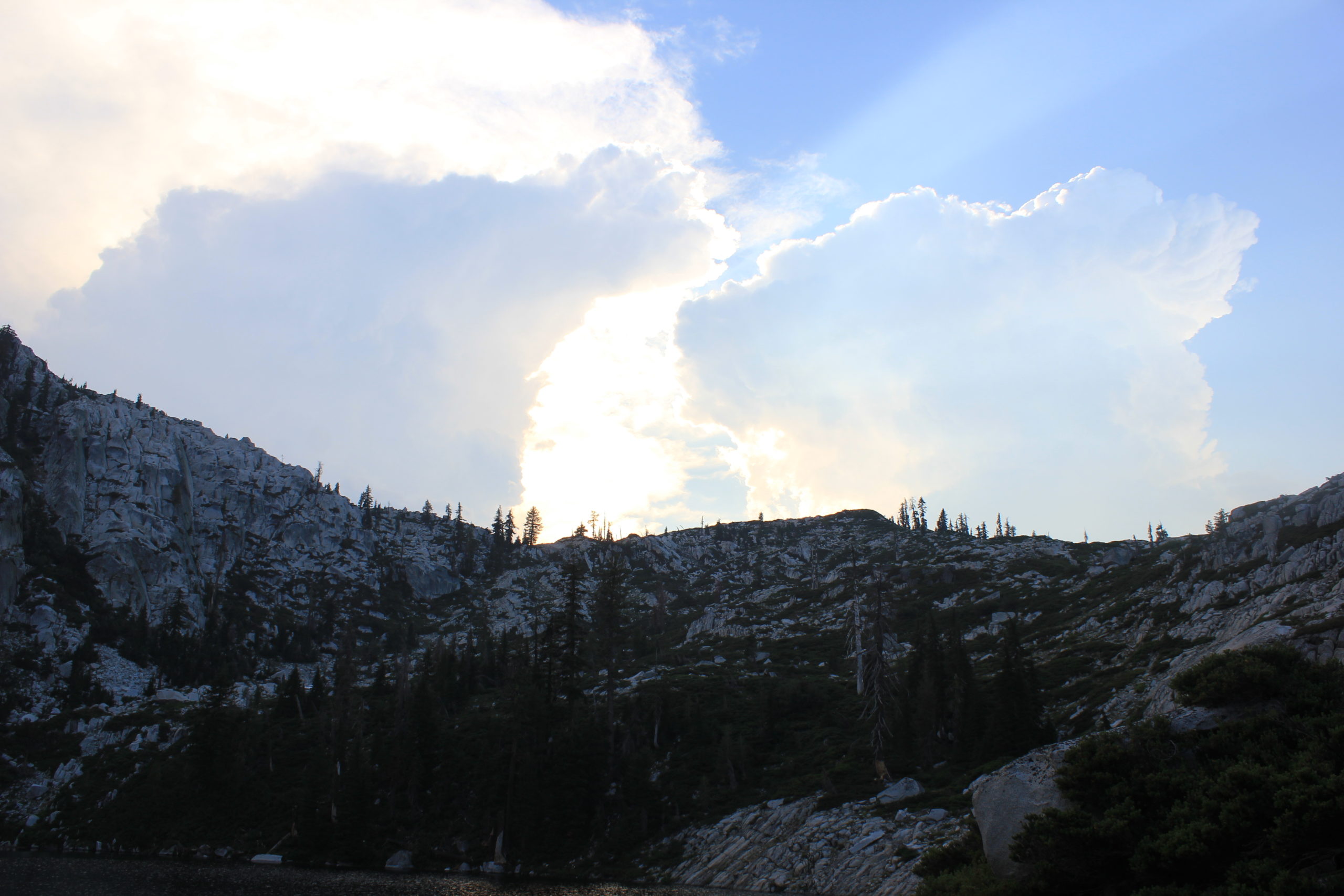
I hoped that these trips to a pristine, alpine lake would instill a sense of responsibility in my grandsons, so they would help take care of places like this for the rest of their lives, and far into the future. Truly unspoiled places are diminishing rapidly. Big Bear Lake in particular has gotten very popular, and the constant trampling shows all around the lakeside. Fewer hikers make it up to Little Bear, and fewer still stay long enough to sleep overnight (or to defecate on the rocks), but after nearly 50 years of coming up here, I see the unmistakable signs of human carelessness. Clumsy fishermen’s trails trace the shoreline, and trees near the campsites are scarred and worn. Too many still visit these places with a sense of avarice and entitlement, as if the world exists solely for their enjoyment. The real purpose of the wild places is far deeper than providing recreation, or a few scenic pictures. They exist entirely on their own, in a near-perfect state of natural balance; quite independent of our selfish sense of adventure or covetousness. If we visit them with proper respect and humility, the rewards are far greater than a trout dinner or a nice screen saver.
By evening, the clouds had predictably built up to the west, with a huge, mushrooming thunderhead forming directly above the lake. It looked more threatening than the night before, and rumbles of thunder made us quickly batten the hatches, and abandon all hope for stargazing. The first sprinkles at twilight drove us inside our tents, but it never really cut loose. Instead, it turned out to be a long and pleasant night for us to catch up on our sleep. The clouds rumbled and grumbled their displeasure, but were quickly drowned out by a chorus of operatic chainsaws.
“The woods, the trees, and the rocks give man all the resonance he needs.”
— Ludwig van Beethoven

